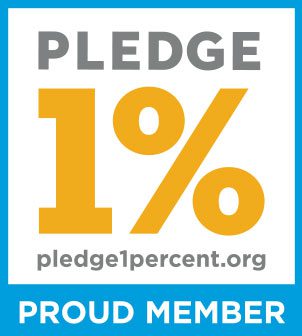How to Accept Cryptocurrency Donations Without Being an Expert
And the Many Benefits Associated with Joining the Crypto Trend
In cryptocurrency donations, Fidelity Charitable received:
- $13 million in 2019
- $28 million in 2020
- $150 million by from January-July, 2021
Their stakeholders aren’t experts in cryptocurrency, nor do they manage it. And you don’t have to either.
Your nonprofit can leverage cryptocurrency donations and reap the many benefits they offer—and we’ll show you how. In this article, we’ll explain what cryptocurrency is and how it works, how to accept it, and why it’s playing a substantial role in the future of nonprofit donations.
Let’s get started:
What is Cryptocurrency and Blockchain?
Cryptocurrency is virtual money that can be exchanged for goods and services. It’s decentralized, meaning it isn’t controlled by one person, bank, or government. Unlike physical cash, cryptocurrency exists on a vast network of computers, often in a blockchain.
A blockchain is a type of computer database that can store all kinds of data, including financial transactions. Blockchain technology stores this information in groups or “blocks” that are “chained” together in a peer-to-peer network—computers linked together that can share files without needing a central network.
Every block in a blockchain sequence is given a unique timestamp when new data appears (e.g. a cryptocurrency transaction). In other words, because of blockchain technology, cryptocurrency is easily traceable, and impossible to counterfeit or copy.
How to Accept Cryptocurrency Donations
The three main ways to accept cryptocurrency donations are:
- Payment Processor: An secure, dedicated third-party management system that manages cryptocurrency transactions for you.
- Cryptocurrency Wallet: An app that lets you store and control your cryptocurrency.
- Hybrid Program: A mixture of the two that has some benefits of both, but not all.
We recommend going with a payment processor, especially if you’re not an expert in cryptocurrency. They’re easy to set up and will make your life much easier. For example, The Giving Block can help you open your account, receive donations easily, automatically convert them to cash, and issue automated tax receipts.
Other payment processors worth looking into include:
Once you decide on a platform to use, accepting cryptocurrency donations becomes easier than dealing with stocks. Payment processors will handle all the technical elements of managing cryptocurrency donations, allowing you to focus on other aspects of your fundraising efforts.
The Benefits of Cryptocurrency Donations
There are many benefits for adding crypto to your list of donation options. Here are a few to consider:
- You’ll be a pioneer
Fundraising is highly competitive. Adding cryptocurrency as a donation option lets you tap into a rapidly growing market that many nonprofits have yet to explore. By being among the first nonprofits to accept cryptocurrency, you’ll be seen as an innovative organization open to new ideas to achieve their goals. Few things are greater for your nonprofit’s brand reputation.
- You’ll Attract Younger Donors
Donors are shifting younger. The Millennial and Gen Z generations donate in greater numbers than Gen X and Baby Boomers. Nearly 75% of Millennials donated during the pandemic, with Gen Zers close behind at 66%.
These two generations are heavily focused on innovation and social responsibility. For many of them, cryptocurrency is appealing because it cuts out the middle-man and shows them how their donation is being used. An eToro Survey reveals that:
- 43% of Millennial online traders trust crypto exchanges more than the stock market.
- 71% of Millennials would invest in crypto if traditional financial institutions offered it.
- 45% of online investors who don’t even trade crypto “expressed interest in having some of their 401k allocated to crypto assets.”
- E-Giving is Up, Snail Mail is Down
Younger generations grew up around technology. Not only are they the most frequent donors, they’re also now the greatest contributors to the economy. Mobile donations alone increased by 50% last year. We expect digital donations will continue to grow in popularity, easily outpacing snail mail.
- It Offer Great Tax Benefits
Cryptocurrency is treated as property, meaning it’s taxed similarly to real estate or stocks. If you buy one bitcoin for $20,000 and sell it for $50,000, you’ll pay capital gains tax on your $30,000 profit.
Donating in cryptocurrency offsets these taxes, so you’ll receive the donation, and your donors will have to pay less to the IRS. It’s a win-win.
- Payment Processors Offer Stability
Nonprofits tend to be more conversative with their digital assets. Most—if not all—of the processing platforms we listed earlier let you quickly exchange cryptocurrency for fiat currency, a.k.a. legal tender, like the U.S. dollar. By selling cryptocurrency almost instantly after it’s donated, you’ll likely avoid market volatility.
- You’ll Open an Additional Donation Channel
Making cryptocurrency an option on your donation page lets you cast a wider net, further diversifying your audience. More and more people prefer to donate in crypto for some or all of the reasons listed above.
Encouraging Stakeholders to Understand the Value of Cryptocurrency
You may be sold on cryptocurrency donations, but you’ve also got a board and stakeholders. How do you convince them to accept crypto donations? Cryptocurrency has a learning curve, and not everyone on your board wants to take a crash course on blockchain technology.
Instead, give them some crypto. If they have a personal stake in cryptocurrency, they’re much more likely to educate themselves on how to use it. Even just a few dollars can galvanize stakeholders enough to see what all the fuss is about, and convince them that accepting cryptocurrency donations is the right way to go.
Final Thoughts on Cryptocurrency
Cryptocurrency is intimidating at first, but it’s rapidly growing in popularity and acceptance. Ten years ago, very few people used cryptocurrency. Now it’s getting recognized as legal tender in small countries, and nearly half of non-crypto traders want it to be part of their 401ks.
Cryptocurrency can create transformational change in the nonprofit world. Become part of that transformation today.



0 Comments